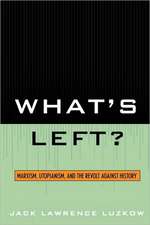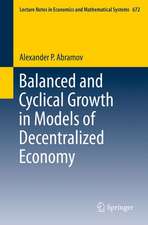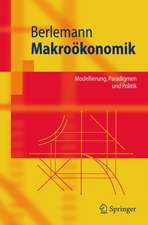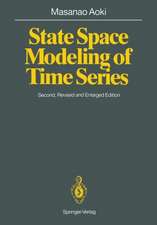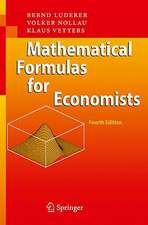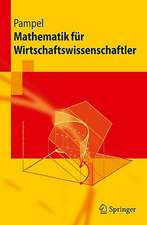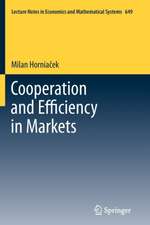Monopoly Restored: How the Super-Rich Robbed Main Street
Autor Jack Lawrence Luzkowen Limba Engleză Hardback – 26 iul 2018
| Toate formatele și edițiile | Preț | Express |
|---|---|---|
| Paperback (1) | 728.43 lei 6-8 săpt. | |
| Springer International Publishing – 3 ian 2019 | 728.43 lei 6-8 săpt. | |
| Hardback (1) | 733.65 lei 6-8 săpt. | |
| Springer International Publishing – 26 iul 2018 | 733.65 lei 6-8 săpt. |
Preț: 733.65 lei
Preț vechi: 894.68 lei
-18% Nou
Puncte Express: 1100
Preț estimativ în valută:
140.40€ • 146.40$ • 116.69£
140.40€ • 146.40$ • 116.69£
Carte tipărită la comandă
Livrare economică 20 martie-03 aprilie
Preluare comenzi: 021 569.72.76
Specificații
ISBN-13: 9783319939933
ISBN-10: 3319939939
Pagini: 420
Ilustrații: VII, 384 p.
Dimensiuni: 148 x 210 mm
Greutate: 0.62 kg
Ediția:1st ed. 2018
Editura: Springer International Publishing
Colecția Palgrave Macmillan
Locul publicării:Cham, Switzerland
ISBN-10: 3319939939
Pagini: 420
Ilustrații: VII, 384 p.
Dimensiuni: 148 x 210 mm
Greutate: 0.62 kg
Ediția:1st ed. 2018
Editura: Springer International Publishing
Colecția Palgrave Macmillan
Locul publicării:Cham, Switzerland
Cuprins
1. Introduction.- 2. Democracy Corrupted.- 3. The Rise and Rise of Wall Street and the City of London.- 4. The Ascendancy of the Corporate Elite.- 5. The Decline of Main Street and the Middle Class.- 6. The Politics of Taxes.- 7. The Business of Healthcare.- 8. Big and Bigger Agribusiness: Farm to Table.- 9. What Can Be Done?
Notă biografică
Jack Lawrence Luzkow is Professor of History at Fontbonne University, USA. His previously published works include The Great Forgetting: The Past, Present, and Future of Social Democracy and the Welfare State; What’s Left: Marxism, Utopianism, and the Revolt against History; and The Revenge of History: Why the Past Endures, A Critique of Francis Fukuyama.
Textul de pe ultima copertă
This book is a work of contemporary economic history focusing primarily on the US and the UK. It shows that, historically, much of the wealth of the ultra-wealthy has been based on inheritance, tax evasion, political influence, or wage theft. Today, much of the wealth of the rentier class—the super-rich—is based on income from ownership or control of scarce assets, or assets artificially made scarce. As a result, the super-rich reap much of their wealth from patents, monopolies, and subsidies. Their banks retain the right to speculate on risky derivatives, and their credit-card companies are not limited by usury laws that reduce interest rates. The super-rich have lowered (or escaped) inheritance taxes, shifted much of their income to lower taxed capital gains, practiced wage theft, fought minimum wage laws, outsourced jobs, and resorted to temps and contract labor to avoid unions and decent wages. They use tax havens where trillions of dollars remain untaxed, transfer profits of theirintellectual and financial property to subsidiaries in low-tax regimes, and defend for-profit health insurance that is unaffordable and inequitable for millions. This book states in qualitative and quantitative terms how expensive the super-rich have become, why they are unsustainable for the rest of us, and what the way forward to greater economic equality may be. In sum, the super-rich are unaffordable.
Caracteristici
Uses a contemporary economic history framework to examine how the super-rich cause rising inequality by extracting wealth from other classes Argues that the super-rich corrupt democracy by converting their assets into political muscle, and then political muscle into more assets Explores how financial deregulation, tax evasion, repression of unions, wage theft, undeserved patents, for-profit healthcare, and government subsidies have contributed to the wealth of the rentier class

